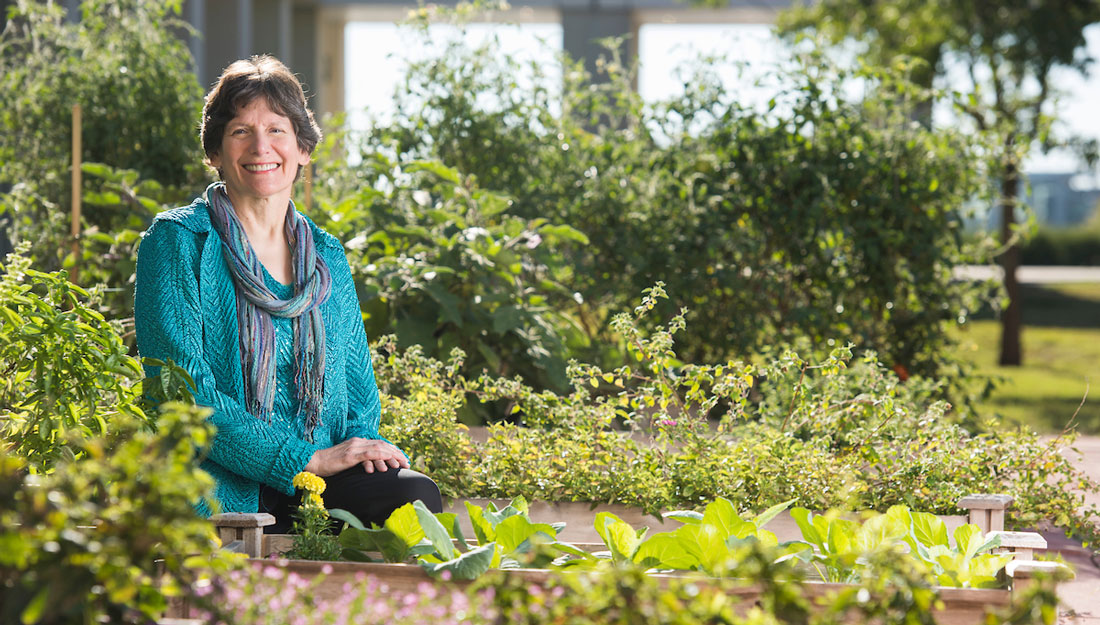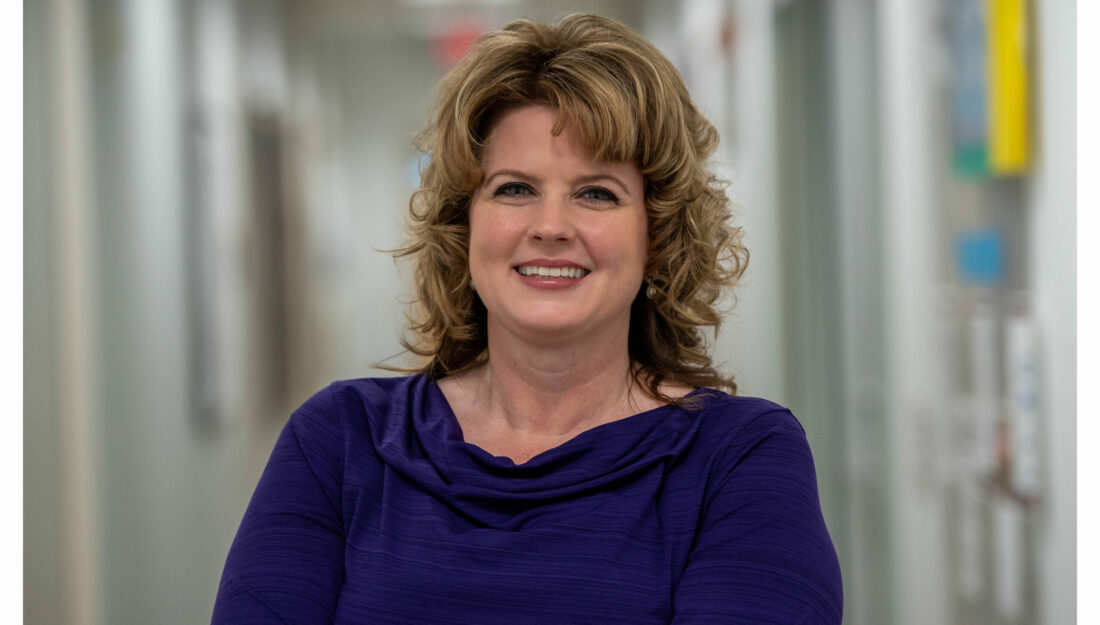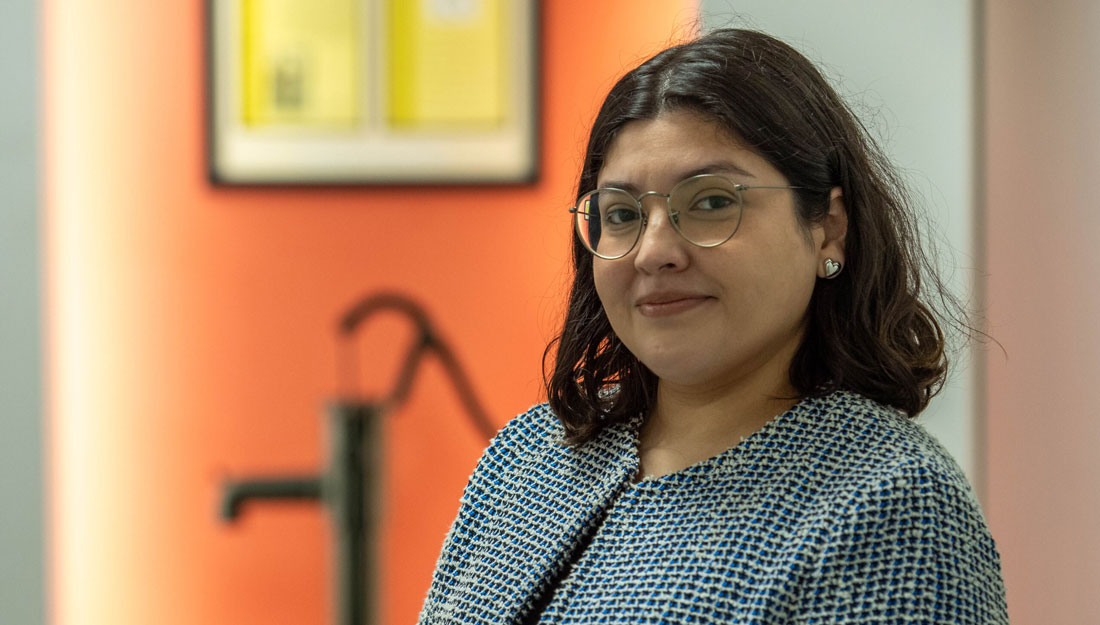- Ann Kellett, PhD
- Public Health, Research, Show on VR homepage
School of Public Health professor testing automated fall detection, risk prediction system for people with dementia
Project is supported by a $1.3 million National Institute on Aging grant from an industry partner developing the cutting-edge system

Regents and Distinguished Professor Marcia Ory, PhD. (Texas A&M Health Marketing and Communications)
Marcia Ory, PhD, Regents and Distinguished Professor in the Department of Environmental and Occupational Health at the Texas A&M University School of Public Health, has been awarded $1.3 million to collaborate on testing an automated fall detection and fall risk prediction system for persons living with dementia. The funding is part of a Small Business Innovative Research Grant obtained by her industry partner, Clairvoyant Networks, Inc.
The funding, from the National Institute On Aging, will be used to develop a system that simplifies and improves risk assessment for, and detection of, mobility-based falls, and quickly sends alerts after a person living with dementia falls.
The project is a partnership between the Texas A&M Health Center for Community Health and Aging, where Ory is a faculty member, and Clairvoyant Networks, Inc., which have been developing a cutting-edge platform based on artificial intelligence (AI) and neural networks. Building on this collaborative work, Clairvoyant was named a semi-finalist in the Longitude Prize on Dementia in June 2023 for its platform for detecting and predicting falls among persons living with dementia.
Falls are a major public health concern for people with dementia, but precise and practical fall detection systems are lacking for those living in the community. “Older adults with cognitive impairment such as dementia are more likely to fall than those without memory impairments,” Ory said. “Unfortunately, assessing the fall risk and detecting falls among this group is challenging because their ability to communicate and understand instructions is diminished.”
The Clairvoyant Networks project will develop and test an automated fall detection system using artificial intelligence in a neural-network to understand the highly precise data from ultra- wideband (UWB) technology, a radio technology that collects data related to sensors, location and tracking and is used in smartphones and similar devices.
“This highly precise solution will enhance the independence and quality of life of the person living with dementia and provide the caregiver with actionable information about falls and patterns of behavior that may lead to an increased risk of a fall,” said Stephen Popovich, president/CEO of Clairvoyant Networks. “The system will also gather mobility data on changes in the wearer’s gait, balance or other indicators of an increased likelihood of falling.”
This project will move from lab studies to real-world applications in two phases. In phase 1, the team will test the ability of Clairvoyant’s fall detection system Theora® 360 to detect simulated falls in a laboratory setting.
“We’ll study issues such as whether the type of fall or location of sensors affects the accuracy of fall detection and get feedback from users during phase 1 on their technology acceptance,” Ory said. “The Texas A&M Judo team, who knows how to fall safely, will be primary research participants. We will also assess mobility movements among older adults in the community.”
Phase 2 will begin once 90 percent sensitivity to falls and 90 percent specificity in fall detection in the lab are reached and the protocols, AI/neural network, data platforms and other data are codified. In this phase, the team will assess Theora® 360’s ability to detect mobility-based falls and to predict changes in fall risk over time among people living with dementia in real-world community settings. For the latter, the team will develop an algorithm for activity modeling and risk profiling based on the overall mobility, gait and daily routines of 60 care recipients who live at home with a caregiver.
“In addition to the objective data we receive from sensors that operate around the clock, we will also conduct surveys and interviews with study participants to get user feedback about the feasibility and acceptability of Theora® 360,” Ory said.
“This university-industry partnership provides a unique opportunity to develop technology that can enable people living with dementia to be more independent and have a higher quality of life,” Popovich said.
Media contact: media@tamu.edu


